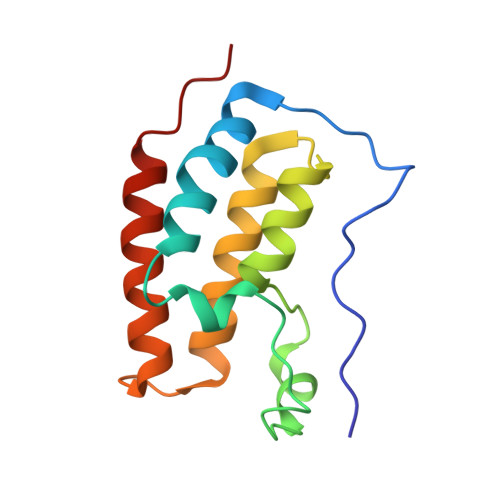DRUG DEVELOPMENT. Phthalimide conjugation as a strategy for in vivo target protein degradation.
Winter, G.E., Buckley, D.L., Paulk, J., Roberts, J.M., Souza, A., Dhe-Paganon, S., Bradner, J.E.(2015) Science 348: 1376-1381
- PubMed: 25999370
- DOI: https://doi.org/10.1126/science.aab1433
- Primary Citation of Related Structures:
4ZC9 - PubMed Abstract:
The development of effective pharmacological inhibitors of multidomain scaffold proteins, notably transcription factors, is a particularly challenging problem. In part, this is because many small-molecule antagonists disrupt the activity of only one domain in the target protein. We devised a chemical strategy that promotes ligand-dependent target protein degradation using as an example the transcriptional coactivator BRD4, a protein critical for cancer cell growth and survival. We appended a competitive antagonist of BET bromodomains to a phthalimide moiety to hijack the cereblon E3 ubiquitin ligase complex. The resultant compound, dBET1, induced highly selective cereblon-dependent BET protein degradation in vitro and in vivo and delayed leukemia progression in mice. A second series of probes resulted in selective degradation of the cytosolic protein FKBP12. This chemical strategy for controlling target protein stability may have implications for therapeutically targeting previously intractable proteins.
- Department of Medical Oncology, Dana-Farber Cancer Institute, Boston, MA 02115, USA.
Organizational Affiliation:

















